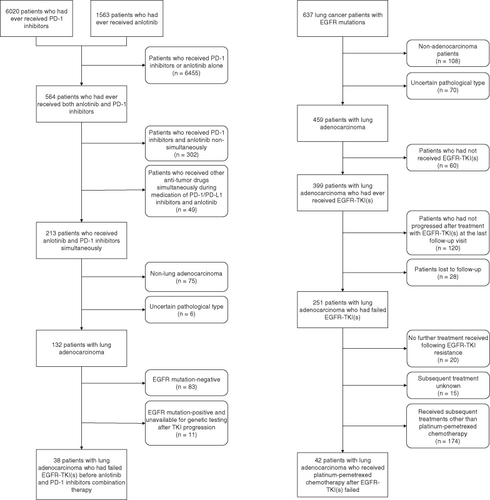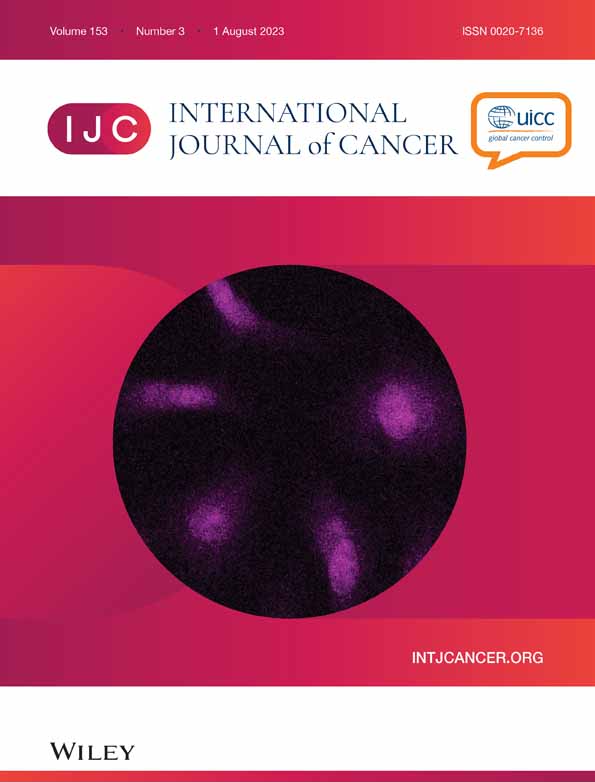Multi-target angiogenesis inhibitor combined with PD-1 inhibitors may benefit advanced non-small cell lung cancer patients in late line after failure of EGFR-TKI therapy
Lian Yu and Yaohua Hu have contributed equally to this article.
Abstract
Treatments for NSCLC patients with EGFR-TKI resistance are limited. Given that immunotherapy and antiangiogenic agents may have synergistic antitumor effects, we aimed to analyze the effect of multi-target angiogenesis inhibitor anlotinib and immune checkpoint inhibitors (ICIs) combination therapy in NSCLC patients who failed EGFR-TKI. The medical records of lung adenocarcinoma (LUAD) patients with EGFR-TKI resistance were reviewed. After EGFR-TKI resistance, patients who simultaneously received anlotinib and ICIs were enrolled in the observation group, and those who received platinum-pemetrexed chemotherapy were included in the control group. A total of 80 LUAD patients were reviewed and allocated to the anlotinib and ICIs combination therapy (n = 38) and chemotherapy (n = 42) groups. A re-biopsy was performed in all patients in the observation group before the administration of anlotinib and ICIs. The median follow-up was 15.63 months (95% CI: 12.19-19.08). Combination therapy exhibited better PFS (median PFS: 4.33 months [95% CI: 2.62-6.05] vs 3.60 months [95% CI: 2.48-4.73], P = .005), and better OS (median OS: 14.17 months [95% CI: 10.17-18.17] vs 9.00 months [95% CI: 6.92-11.08], P = .029) than chemotherapy. Most patients (73.7%) received combination therapy as fourth and later lines of therapy, with a median PFS of 4.03 months (95% CI: 2.05-6.02) and a median OS of 13.80 months (95% CI: 8.25-19.36). The disease control rate was 92.1%. Four patients discontinued the combination therapy due to adverse events, but the other adverse reactions were manageable and reversible. The combination of anlotinib and PD-1 inhibitors is a promising regimen for the late-line treatment of LUAD patients with EGFR-TKI resistance.
Graphical Abstract
What's new?
Patients with EGFR-mutated non-small cell lung carcinoma (NSCLC) have few treatment options once their disease develops resistance to tyrosine kinase inhibitors. Here, the authors evaluated the efficacy of immune checkpoint inhibitors combined with the angiogenesis inhibitor anlotinib. 38 patients received anlotinib plus PD-1 inhibitors and 42 patients received chemotherapy. The combination therapy improved progression-free survival and overall survival over chemotherapy, and could be a promising fourth-line strategy after patients develop resistance to EGFR-TKIs.
CONFLICT OF INTEREST
The authors declare no conflict of interest.
Open Research
DATA AVAILABILITY STATEMENT
All presented data in this study are available from the corresponding author upon reasonable request.





